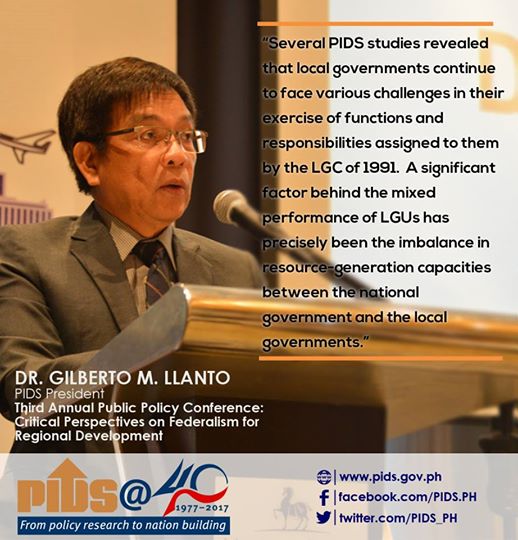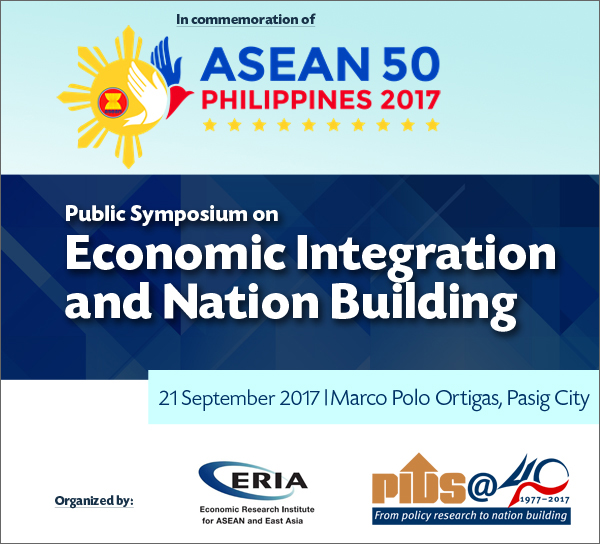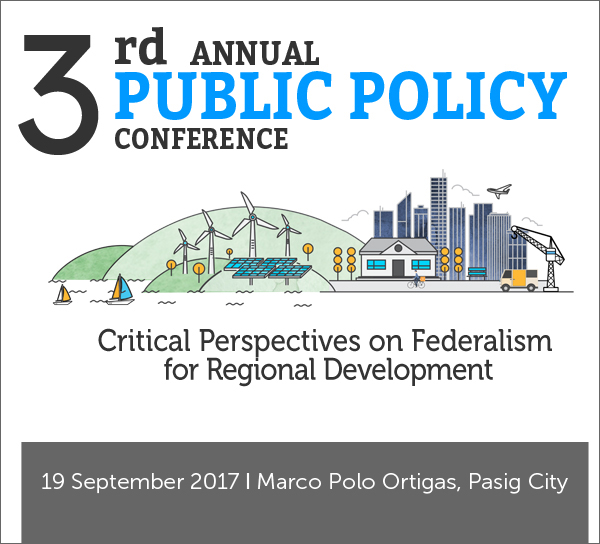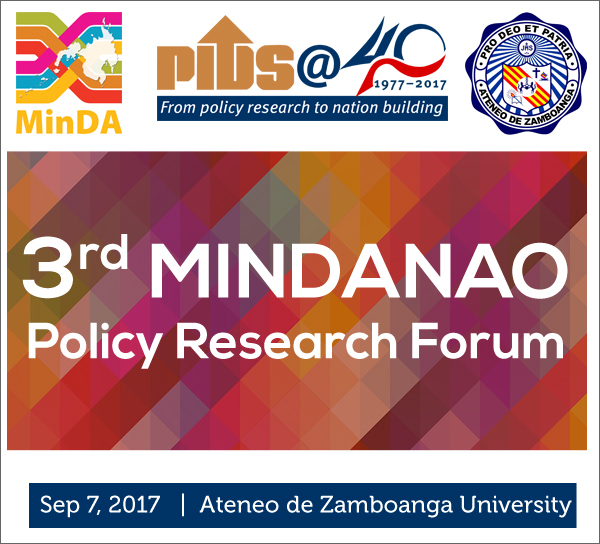PIDS urges policymakers to carefully study federalism proposal
 State think tank Philippine Institute for Development Studies (PIDS), in its Third Annual Public Policy Conference (APPC) on Tuesday (September 19), urged policymakers to pursue a comprehensive study of the proposed shift to a federal form of government.
State think tank Philippine Institute for Development Studies (PIDS), in its Third Annual Public Policy Conference (APPC) on Tuesday (September 19), urged policymakers to pursue a comprehensive study of the proposed shift to a federal form of government.This year’s APPC, which has the theme “Critical Perspectives on Federalism for Regional Development”, aims to gather different analyses and insights on federalism from the country’s most prominent scholars and experts of political science, public administration, governance, and public finance.
“It is worth recalling our history to remind us why we are all here today. Since the Spanish period, Manila has served as the country’s seat of economic and political power. Some Filipinos, especially those living in the Visayas and Mindanao, have blamed such concentration of power as the main driver of the uneven development in the country today, and have called for a more even sharing of power, resources and governmental responsibilities,” said PIDS President Gilberto Llanto in his opening remarks.
Llanto stressed that it is important for the Philippines to carefully examine the possible implications of shifting to federalism using a multidisciplinary lens and to take into account the country’s political, economic, social, and historical context.
“A very important challenge before us in the policy research and academic community is to clarify the policy discourse on federalism. There is not only one model of federalism that countries with a federal structure of government have followed. It can be assumed that the federal states that we have today had agreed to adopt a particular federalist structure that would best address their deeply-cherished goals, challenges, and experiences,” he added.
The conference presentations covered topics ranging from allocation of functional responsibilities, taxing powers and management of financial resources, delineation of territorial boundary of states, treatment of local government units, to political stability of the proposed shift to federalism and its relationship and effects to political parties and political dynasties in the country.
There were also sessions that delved on concepts of centralization versus decentralization in both the administrative and political spheres including comparisons and key lessons from countries that adopted a federal form of government such as Germany and the United States.
The APPC serves as the main activity of the Development Policy Research Month, an annual nationwide celebration led by PIDS every September pursuant to Presidential Proclamation No. 247.
Started in 2015, the APPC aims to convene experts and researchers in the social sciences to flag to policymakers critical issues that must be addressed in the immediate term. It is envisioned to serve as a platform to further bridge research and policymaking, and enhance evidence-informed planning and policy formulation in the Philippines. ###




